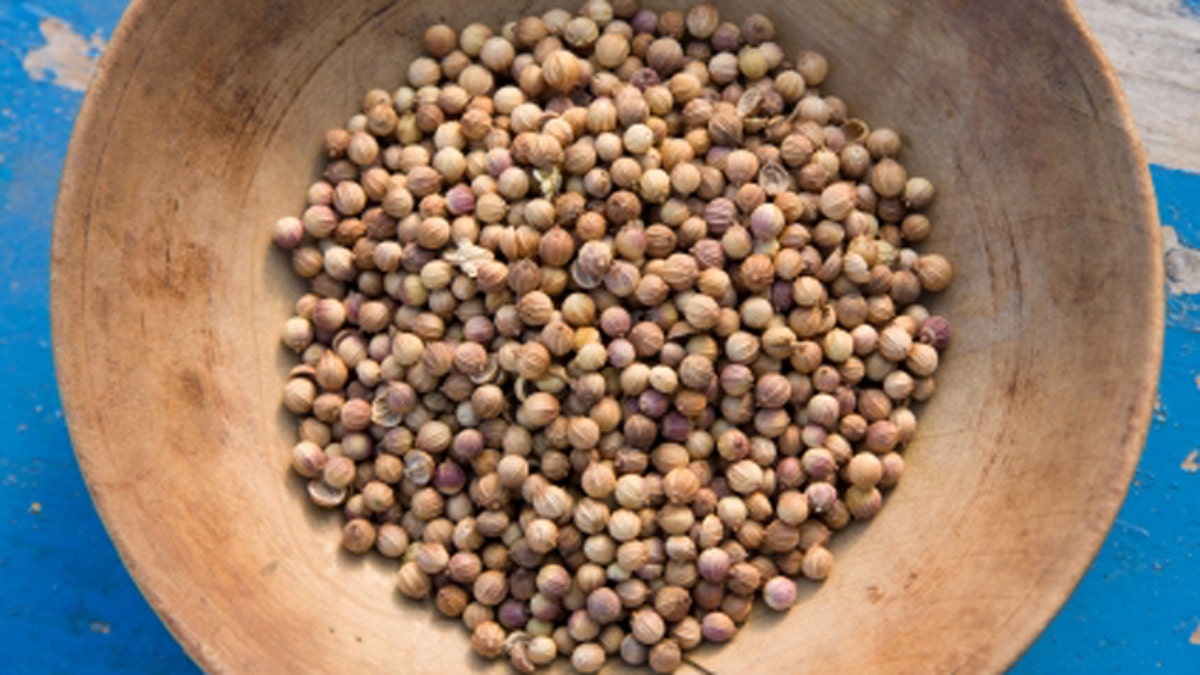
(iStock)
COVILHA, Portugal – Coriander oil is a natural antibiotic that could be used to treat infections and prevent food poisoning, Portuguese scientists said Wednesday.
Researchers from the University of Beira Interior in Portugal tested coriander oil — produced from the seeds of the coriander plant — against 12 strains of bacteria and found that it killed most and reduced growth in them all.
A solution containing less than 1.6 percent of the oil was effective on bacteria cells including salmonella, E.coli and MRSA, according to the authors of a study, published in the Journal of Medical Microbiology.
"Coriander oil could also become a natural alternative to common antibiotics," Fernanda Domingues, who led the research, said. "We envisage the use of coriander in clinical drugs in the form of lotions, mouth rinses and even pills to fight multidrug-resistant bacterial infections that otherwise could not be treated. This would significantly improve people's quality of life."
Domingues said that the oil works by damaging the membrane surrounding the bacterial cell, inhibiting essential processes including respiration, which ultimately leads to death of the bacterial cell.
Coriander, widely used in Mediterranean cooking, has been known for centuries for its health benefits, including pain relief, easing cramps, curing nausea and aiding digestion.







































